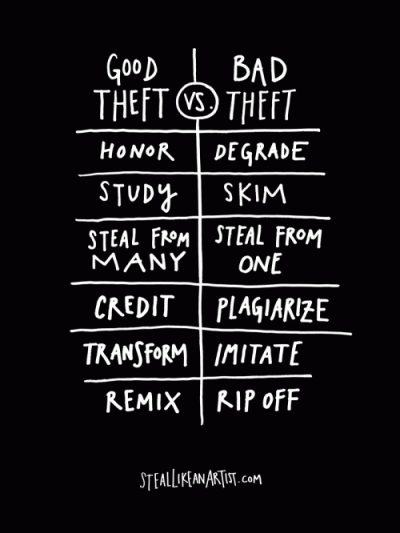Humankind, it seems, is always embroiled in a battle with what it creates. How far will we go in our efforts to create a life of leisure? No matter what we construct to ease the burden of laborious lives, nothing can match our own minds and bodies for being the unique problem solvers, thinkers and doers that we are. At least for now.
Artificial Intelligence: Friend or Foe?
Recently A.I. (Artificial Intelligence) has been a disruption in our stream of consciousness. A.I. is seen by some as a useful tool while part of humanity succumbs to the notion that the machines will take over once they start thinking “humanity” is obsolete. “Thinking” being the key word here.
Let’s take the example of A.I. generated imagery. For creatives, this presents cause for pause. Currently some A.I. generators can spit out entire online ad campaigns in minutes. They can generate somewhat ideal images from any situational input with the click of a mouse. This poses a practical question: if anyone can have this tool at their disposal, are highly trained creatives, obsolete?
Some would guess that it is only a matter of time before everything generated by A.I. starts to look like it was generated by A.I. Although, things seem quite good now, once inspiration sources become saturated with the same auto-generated imagery, will an A.I. generator be able to create something new? An A.I. generator is only as good as its input. An argument could be made there is no originality anyway (the originality paradox). Would artificial creativity be able to use what it’s learned from past and present to invent beyond its programing?
Steal Like an Artist by Austin Kleon, written over a decade ago, explores how creativity is fostered. In his book, he invites us to remix and reimagine what we’ve learned. Professional creatives have been educated to develop creative instincts. We condition our thinking to be less linear. We think beyond the literal and into the abstract. This is something A.I. may find difficult to learn.
 The chart to the right, describes how an artist steals “good theft” and how a soul-less entity may steal “bad theft”. A machine, at this point, can imitate and plagiarize. However, true creation is invention. Artists, storytellers and designers study the past and present to construct something new. Professional, well-trained creatives are educated in this process and utilize it to articulate and design a brand’s messaging.
The chart to the right, describes how an artist steals “good theft” and how a soul-less entity may steal “bad theft”. A machine, at this point, can imitate and plagiarize. However, true creation is invention. Artists, storytellers and designers study the past and present to construct something new. Professional, well-trained creatives are educated in this process and utilize it to articulate and design a brand’s messaging.
A.I. can and should be used as a tool. Brushes, paint, printing press, and computer software are all tools that have entered the artist’s landscape. A.I. is just the next evolution in the artist’s toolkit.
Process vs. Outcome
Creatives are process oriented people and new tools have been introduced through centuries to expedite the production process of our work. However, the same innovation for tools on the conceptual side of the process has been lacking. Critical steps in the creative process happen during exploration. Utilizing the tool of A.I. generators and our uniquely creative input, we could generate a host of visual ideas in seconds. In essence, inspiring ideas that may have been previously overlooked in our research.
Where A.I. may pose a threat to creatives, is with more outcome-oriented people who could be inclined to copy the first few A.I. generated images without prejudice or a critical eye. They could be satisfied with faster, less focused results. It is the opinion of most experts that A.I. cannot emulate the human eye for aesthetics or emotion. In Mr. Kleon’s book there is checklist of attributes that creatives must have:

At Bachman Brand Development, we’ve checked all these boxes and passed the Voight-Kampff Test – (free pen to anyone understanding that reference). Reach out to us and learn more about how our human, process-driven creative can help ascend your brand beyond your wildest human-generated dreams.
Header Image was A.I. generated imagery from DALL-E. Search terms included “Android, painting, creating, etc.)
Chart Images from: Steal Like an Artist ©2012 Austin Kleon
Source inspiration for this was found here: “A.I. vs. Artist: The Future of Creativity”, “Artificial Intelligence vs. Human Creativity: Where do we go from here?”



